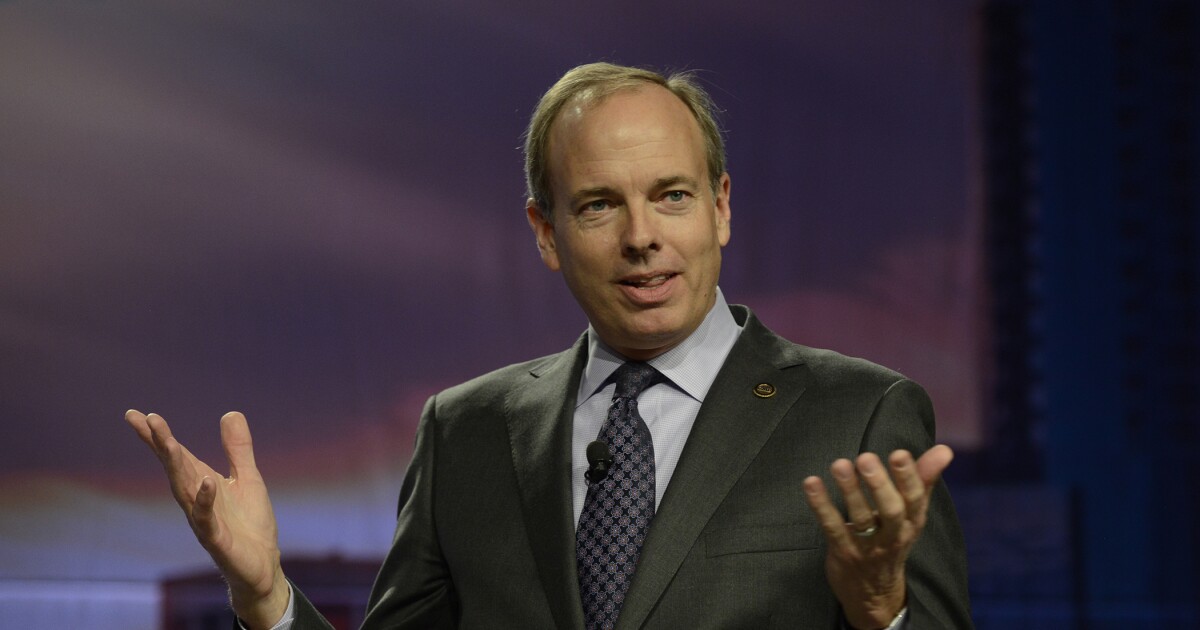
The Mortgage Bankers Association expects regulatory easing in the first months of the second Donald Trump administration to provide favorable tailwinds for the lending industry, its top official said on Tuesday.
With a release from a series of existing and pending rules put forth by financial regulators under former President Biden, the association's CEO Bob Broeksmit presented "a case for optimism" to members, touting the "quiet progress" it's made since January.
"We saw an opening immediately after the last election. We quickly reached out to the presidential transition team and had some great discussions. And since the new administration started in January, we've had countless conversations with the White House, Congress and key agency staff," Broeksmit said in remarks at the trade association's secondary markets conference in New York on Tuesday.
"We have fewer worries of overregulation and policy proposals that hurt the industry and ultimately increase borrower costs," he later added.
Among the wins touted by Broeksmit was
In the homebuilding space, he pointed to
"They've now delayed the standards by at least six months. Once again, we're calling for a full repeal, and we're optimistic that we'll succeed," Broeksmit said.
Coming alongside changes, though, has been a
"I think it's fair to say that not all the cuts have been necessary. But as we're hearing from those inside the administration, smaller teams will help keep agencies focused on doing their statutorily mandated jobs — and giving you the space to do your job."
Regularly at odds with the Consumer Financial Protection Bureau under former Director Rohit Chopra, the MBA leader also celebrated the reversal of several Biden-era laws and the overall shifting deregulatory stance the agency has taken this year that
Still, Brokesmit acknowledged the need for guardrails.
"While we're continuing to push for more deregulation, we're also pointing out that not everything needs to go," he stated.
"Some CFPB guidance is helpful to both the primary and secondary markets, so it doesn't make sense to take a sledgehammer to everything."
How GSEs are working to provide affordability relief
While a changed rulemaking landscape may produce a favorable business environment, it doesn't fully address ongoing affordability constraints facing the mortgage industry. Following Broeksmit's presentation, representatives at Fannie Mae and Freddie Mac took the stage to detail progress being made to alleviate cost pressures in front of both borrowers and lenders.
Fannie Mae noted improvements introduced to its condominium-lending process in recent years that will help erase some of the repetitive underwriting processes and costs required for loans on properties previously financed.
In its project manager tool, the enterprise is leaning into evaluating properties itself and designating them as approved if they meet eligibility requirements. In June, Fannie Mae will add the findings into its direct underwriting reports, offering the lenders the chance to quickly move forward on an application.
"We've seen that save about $5 million in documentation costs throughout the course of 2024," said Malloy Evans, head of single-family mortgage at Fannie Mae.
Evans also noted borrower savings coming from title initiatives, with modernization resulting in close to $12 million in overall savings to consumers. Its title-alternative pilot for a limited set of refinance transactions also netted over $1,000 in savings per homeowner since it was first introduced in late 2024, he said.
Meanwhile, Freddie Mac pointed to the
"It's not just for salaried borrowers, but it's also for self-borrowers, said Freddie Mac head of single-family acquisitions Sonu Mitttal. The company hopes to add additional types of income sources to the tool later this year.



